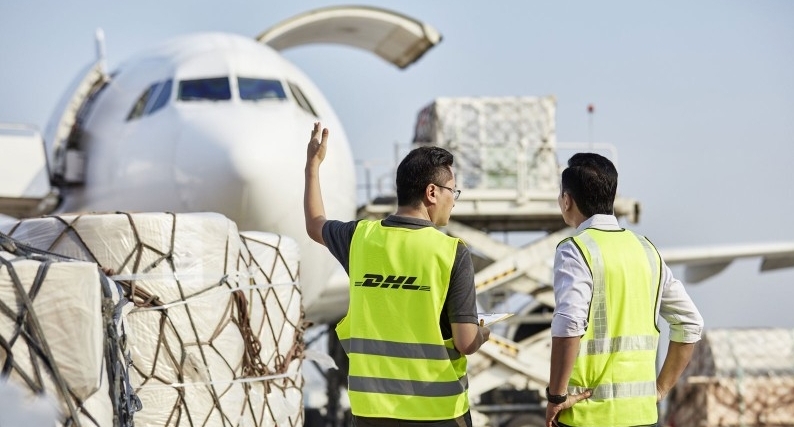DHL Global Forwarding joins United Airlines' Eco-Skies Alliance programme
DHL Global Forwarding will fund the purchase of sustainable aviation fuel (SAF) via United Airlines.

- Together, the participating companies can eliminate approximately 31,000 tonnes of greenhouse gas emissions on a lifecycle basis.
May 28, 2021: DHL Global Forwarding will fund the purchase of sustainable aviation fuel (SAF) via United Airlines. As part of the Eco-Skies Alliance program, the logistics expert is one of the programme participants that will contribute towards SAF purchases of 3.4 million gallons (12.87m litres) this year to reduce emissions.
"We are very proud to take another step on our sustainability roadmap towards zero emissions. Through this partnership we will be able to show how a market mechanism for SAF can help airlines, freight forwarders, and shippers work together to accelerate the transition to a low-carbon, ultimately zero carbon emissions transport sector," said Tim Scharwath, CEO DHL Global Forwarding, freight.
To help scale up the usage of SAF, DHL will utilise a 'book and claim' mechanism for the corresponding carbon life cycle reductions. Such a mechanism removes the requirement for physical traceability of the fuel through a supply chain via the sale and purchase of certificates or credits. While creating critical mass of certified SAF, it also provides market access to all within the industry, regardless of their location or size. A common example of an existing book and claim system are renewable energy certificates (REC) for green electricity. DHL Global Forwarding is currently piloting the 'book and claim' mechanism with select customers and will make it available to all customers later this year.
"Clean Skies for Tomorrow's (CST's) Demand Signal group has developed the SAF certificate concept as a workable solution. The 'book and claim' mechanism is an essential element of SAF certificates. We need frontrunners like Demand Signal group participants United Airlines and DHL Global Forwarding to put concepts into practice so that it can be validated and turned into a formal standard," stated Christoph Wolff, head of Shaping the Future of Mobility, World Economic Forum.
Together, the participating companies can eliminate approximately 31,000 tonnes of greenhouse gas emissions on a lifecycle basis, compared to the use of conventional jet fuel.
"Reducing our emissions from fuel use is critically important and when companies as large as DHL recognise the value in switching to SAF, we're another step closer to establishing SAF as a long-term, permanent solution for aviation," said Jan Krems, president of United Cargo.
As part of its sustainability roadmap and Mission 2050, Deutsche Post DHL Group has made a commitment towards a Science Based Target Initiative (SBTi) and will invest €7 billion through 2030 in clean operations to reduce its emissions to under 29 million tonnes. To achieve this target, Deutsche Post DHL Group will increase the blend of SAF in its operations to >30 percent by 2030.


